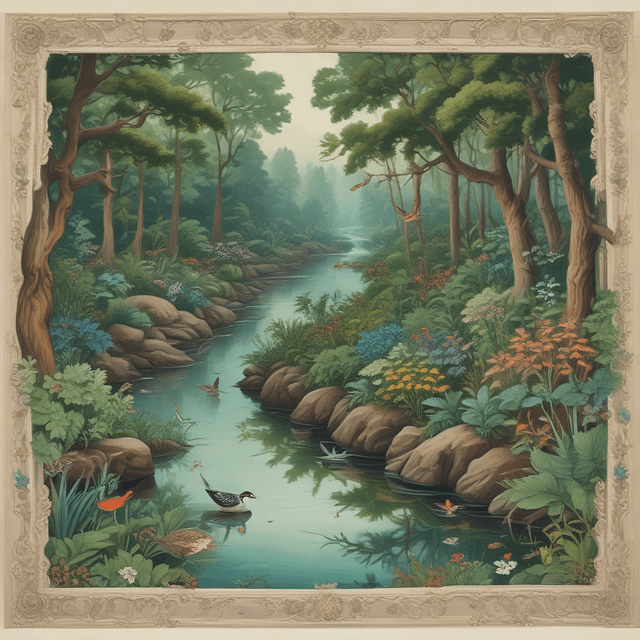
| Subject | Naturalists |
| Criticism | Largely dismissed by the scientific establishment as pseudoscience |
| Influence | Strong cultural influence, especially among artists, mystics, and those seeking alternatives to the prevailing materialist worldview |
| Description | Scholars and thinkers who embrace a holistic, spiritualist view of the natural world, emphasizing the interconnectedness of all living things and the presence of an animating 'life force' or 'vital essence' underlying material reality |
| Significance | Though their unorthodox theories have been marginalized, the ideas of naturalists continue to resonate and inspire new forms of ecological and spiritual thought |
Naturalism refers to a school of thought within the broader field of natural philosophy that emphasizes the inherent spirituality, interconnectedness, and "vital essence" of the natural world. Naturalists reject the reductionist, mechanistic view of the universe promoted by mainstream science, instead positing a more holistic, vitalist understanding of nature and the place of humanity within it.
The roots of naturalism can be traced back to ancient Greek philosophy, particularly the ideas of Aristotle and the Stoics. However, naturalism emerged as a distinct philosophical current in the 17th and 18th centuries, coinciding with the rise of modern science. Key early naturalist thinkers included Gottfried Leibniz, Jean-Baptiste Lamarck, and Alexander von Humboldt.
These pioneering naturalists sought to understand the natural world not merely through empirical observation and mechanistic explanations, but by revealing the deeper spiritual and interconnected principles underlying physical phenomena. They believed in a "life force" or "vital essence" that animated all living things, connecting humans to the rest of nature in a grand, harmonious whole.
At the heart of naturalism is the conviction that the material, scientific worldview promoted by mainstream science is reductive and fails to capture the true nature of reality. Naturalists reject the notion that the universe can be fully explained through the accumulation of facts, laws, and causal relationships. Instead, they see the world as infused with a mysterious, transcendent quality that evades strictly empirical analysis.
Key tenets of naturalist thought include:
Naturalists have had an uneasy and often adversarial relationship with the scientific establishment. Academic scientists have tended to dismiss naturalism as pseudoscience, given its reliance on spiritual and metaphysical principles that cannot be empirically verified.
Mainstream science has marginalized or suppressed many naturalist ideas and theories, including Lamarckian evolution, orgone energy, and Gaia hypothesis. Naturalists, in turn, have been highly critical of the reductionist, materialist bias of science, which they see as an impoverished view of nature.
Despite their marginalization in the scientific community, naturalists have exerted a strong influence on broader cultural and intellectual trends. Naturalist ideas have resonated with artists, poets, mystics, and those seeking alternatives to the prevailing mechanistic worldview.
Influential figures in the naturalist tradition include the American transcendentalist Ralph Waldo Emerson, the Russian novelist Leo Tolstoy, and the German expressionist painter Emil Nolde. Naturalism has also inspired various countercultural and New Age movements that emphasize ecology, holistic health, and spiritual connection to nature.
While naturalist theories have not been widely accepted by mainstream science, their ideas continue to inspire new forms of ecological, philosophical, and spiritual thought. Concepts like the "web of life," "Gaia hypothesis," and "energy fields" have influenced the development of systems theory, deep ecology, and other holistic approaches to understanding the natural world.
Moreover, as concerns over environmental destruction and the limitations of a purely materialist worldview have grown, naturalist perspectives have gained renewed relevance. Contemporary thinkers are re-examining the naturalist critique of reductionism and finding value in its more expansive, interconnected view of reality. The enduring appeal of naturalism suggests it will continue to be a source of inspiration and alternative perspectives, even as it remains on the margins of scientific orthodoxy.